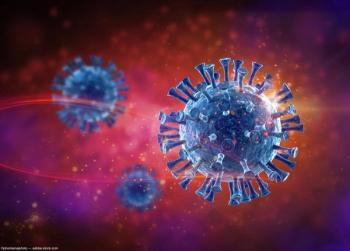
CRISPR-Cas13b prevents SARS-CoV-2 transmission in laboratory study
Australian researchers reported investigating the potential use of CRISPR, the gene-editing technology, to stop SARS-CoV-2 virus transmission in infected human cells.
Australian researchers are investigating the potential use of
This first work was carried out in the laboratory and may soon move into animal studies.
Citing the urgency of stopping the viral spread, the investigators, led by senior authors
Dr. Lewin is from the Department of Infectious Diseases, the University of Melbourne at the Peter Doherty Institute for Infection and Immunity, and
The teams called reprogrammed CRISPR-Cas13b, an effector protein, into play, which works by suppressing replication-competent SARS-CoV-2.
“Reprogrammed Cas13b effectors targeting accessible regions of spike and nucleocapsid transcripts achieved >98% silencing efficiency in virus-free models. Further, optimized and multiplexed Cas13b CRISPR RNAs (crRNAs) suppress[ed] viral replication in mammalian cells infected with replication-competent SARS-CoV-2, including the recently emerging dominant variant of concern B.1.1.7," the investigators reported.
B.1.1.7 is the potent variant that is predominant in the US.
They theorized that the reprogrammed effector protein can silence SARS-CoV-2 strains that might remain unaffected by conventional antiviral therapies, including the recombinant monoclonal antibodies, antibodies from convalescent patients and those that developed as the result of vaccinations, or small inhibitor molecules.
Based on the laboratory findings, the investigators concluded, “The specificity, efficiency and rapid deployment properties of reprogrammed Cas13b … provide a molecular blueprint for antiviral drug development to suppress and prevent a wide range of SARS-CoV-2 mutants, and is readily adaptable to other emerging pathogenic viruses.”
Reference
1. Fareh M, Zhao W, Hu Wenxin, et al. Reprogrammed CRISPR-Cas13b suppresses SARS-CoV-2 replication and circumvents its mutational escape through mismatch tolerance. Nat Comm 2021;12 (4270); https://doi.org/10.1038/s41467-021-24577-9
Newsletter
Don’t miss out—get Ophthalmology Times updates on the latest clinical advancements and expert interviews, straight to your inbox.





























